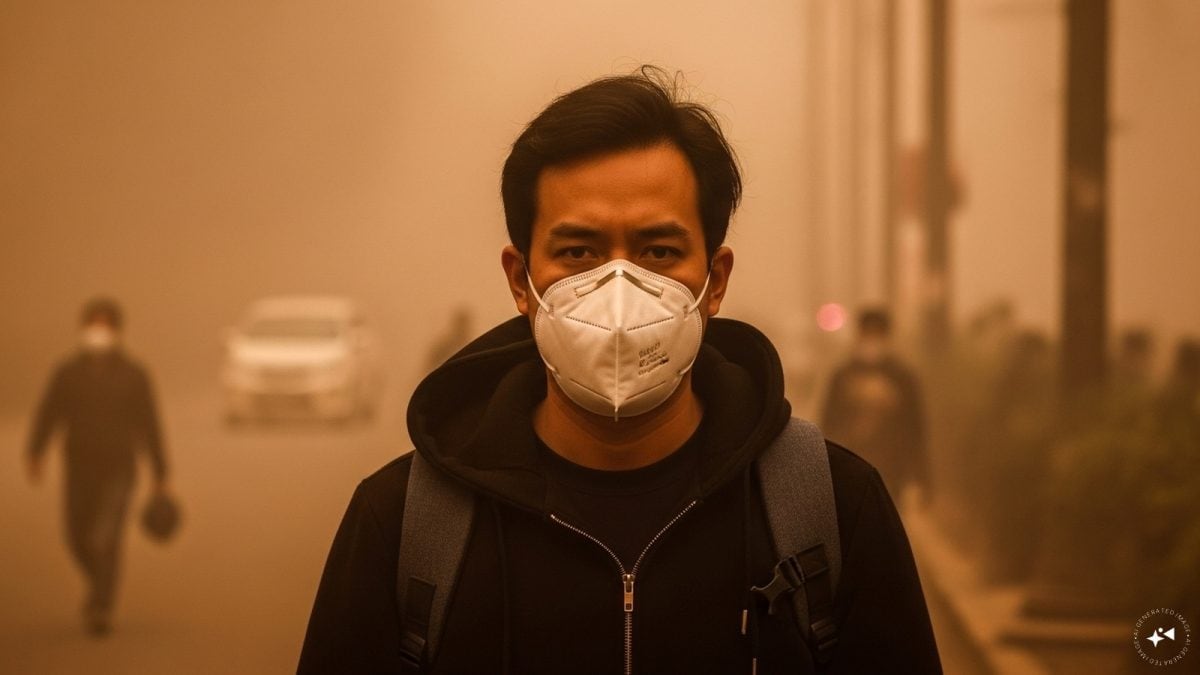Last Updated:
With the onset of winter and festive activities, air quality across India drops to alarming levels. This change has a direct and immediate impact on respiratory and cardiac health.

Winter air pollution worsens respiratory and heart health.
As the seasons change, particularly during winter, air quality in urban and semi-urban areas can drop dramatically. Cooler temperatures trap pollutants near the ground, while smoke from vehicles, crop burning, and firecrackers adds to the toxic mix. These seasonal fluctuations don’t just create hazy skies; they also pose significant risks to respiratory and cardiovascular health for both adults and children.
Short-Term Exposure, Long-Term Consequences
“Short-term pollution and poor air quality can increase the risk of worsening symptoms of COPD, asthma, and other chronic respiratory disorders,” says Dr. Rakesh Godara, Additional Director – Pulmonology, CK Birla Hospitals, Jaipur. He advises limiting exposure to highly polluted areas and known triggers, keeping acute medications at home, and having a nebuliser ready for short-term use.
Dr. Arup Halder, Pulmonologist at CK Birla Hospitals – CMRI, Kolkata, adds, “With the onset of winter and festive activities, air quality often drops to alarming levels, impacting respiratory health especially in children, the elderly, and individuals with asthma or COPD.” Children are particularly vulnerable as their lungs are still developing and they breathe faster than adults, absorbing more pollutants relative to body size. Adults with pre-existing lung or heart conditions may experience fatigue, reduced oxygen levels, and worsening of chronic symptoms.
The Heart Of The Matter
Air pollution doesn’t only harm the lungs. It takes a toll on the heart as well. “Seasonal deterioration in air quality has far-reaching effects not just on the lungs, but also on cardiovascular health,” explains Dr. Dhiman Kahali, Cardiologist, BM Birla Heart Hospital, Kolkata. Microscopic particles such as PM2.5 and PM10 penetrate deep into the respiratory tract and bloodstream, causing inflammation, accelerating atherosclerosis, and increasing the risk of hypertension, arrhythmia, heart attack, and stroke. Alarmingly, air pollution is now considered the third most important risk factor for coronary artery disease, after diabetes and hypertension.
Practical Steps To Reduce Exposure
Experts recommend actionable measures to minimise the impact of seasonal pollution. Limiting outdoor activities when the Air Quality Index (AQI) is poor, particularly early mornings and late evenings, is crucial. Using well-fitted N95 masks, installing air purifiers indoors, keeping windows closed during peak pollution hours, staying hydrated, and maintaining nutrition can help reduce exposure. For those with asthma, COPD, or heart conditions, adherence to prescribed inhalers or medications is essential.
Protecting vulnerable populations, especially children and the elderly, is vital during high-pollution periods. While we cannot control weather or seasonal changes, we can control exposure and lifestyle habits to mitigate risks. Awareness, preventive measures, and informed health choices play a critical role in safeguarding respiratory and cardiovascular health, ensuring that seasonal pollution does not translate into long-term harm.
Delhi, India, India
October 18, 2025, 10:56 IST







